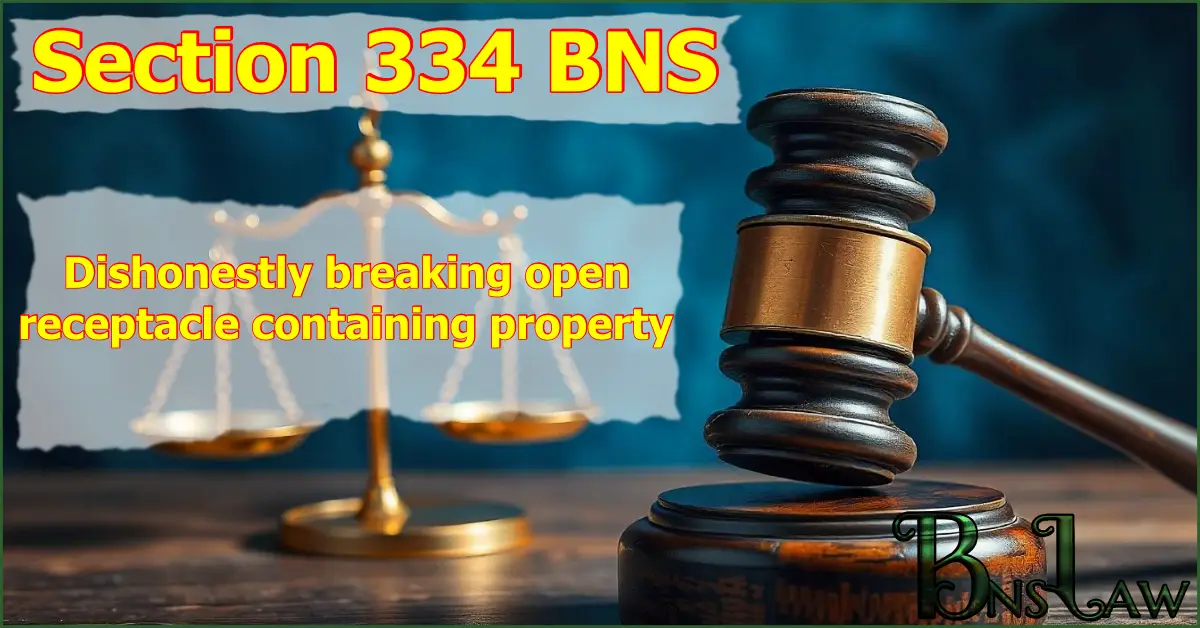Section 334 BNS | BNS 334
334(1) BNS
Whoever dishonestly or with intent to commit mischief, breaks open or unfastens any closed receptacle which contains or which he believes to contain property, shall be punished with imprisonment of either description for a term which may extend to two years, or with fine, or with both.
334(2) BNS
Whoever, being entrusted with any closed receptacle which contains or which he believes to contain property, without having authority to open the same, dishonestly, or with intent to commit mischief, breaks open or unfastens that receptacle, shall be punished with imprisonment of either description for a term which may extend to three years, or with fine, or with both.
READ OTHER SECTIONS OF CHAPTER XVII — OF OFFENCES AGAINST PROPERTY
FAQs of BNS Section 334
-
334 BNS punishment and fine
Punishment and fine under Section 334 of the BNS—
334(1): Imprisonment for 2 years, or fine, or both.
334(2): Imprisonment for 3 years, or fine, or both. -
334 BNS cognizable or not
The offence under Section 334(1) and 334(2) of the BNS is cognizable.
-
334 BNS bailable or not
The offence under Section 334(1) of the BNS is non-bailable and the offence under Section 334(2) is bailable.
-
334 BNS trial court
Offence specified in Section 334(1) and 334(2) of the BNS is triable by any Magistrate.
Important Points
- Cognizable Offences: These are offences where a police officer can arrest a person without a warrant.
- Non-Cognizable Offences: These are offences where a police officer cannot arrest a person without a warrant.
- Bailable Offences: These are offences where the accused can get bail from the police station itself. All bailable offences are listed in the First Schedule of the Bharatiya Nagarik Suraksha Sanhita (BNSS).
- Non-Bailable Offences: Offences in which bail is not granted directly from the police station but after hearing the case in the court, the judge decides when bail will be granted. All non-bailable offences are listed in the first schedule of the Bharatiya Nagarik Suraksha Sanhita (BNSS).
- In the above FAQ, “trial court” means the court that has jurisdiction to try the offence.
- In the above FAQ, the expression “Magistrate of the first class” and “Any Magistrate” does not include Executive Magistrates.
Read other Sections of the BNS
Reference Link: New Criminal Laws (BNS), Ministry of Home Affairs







